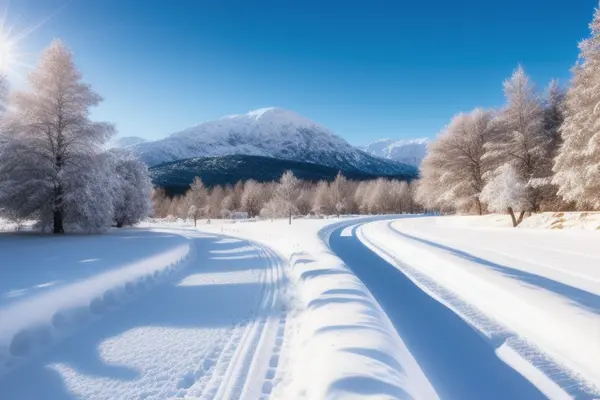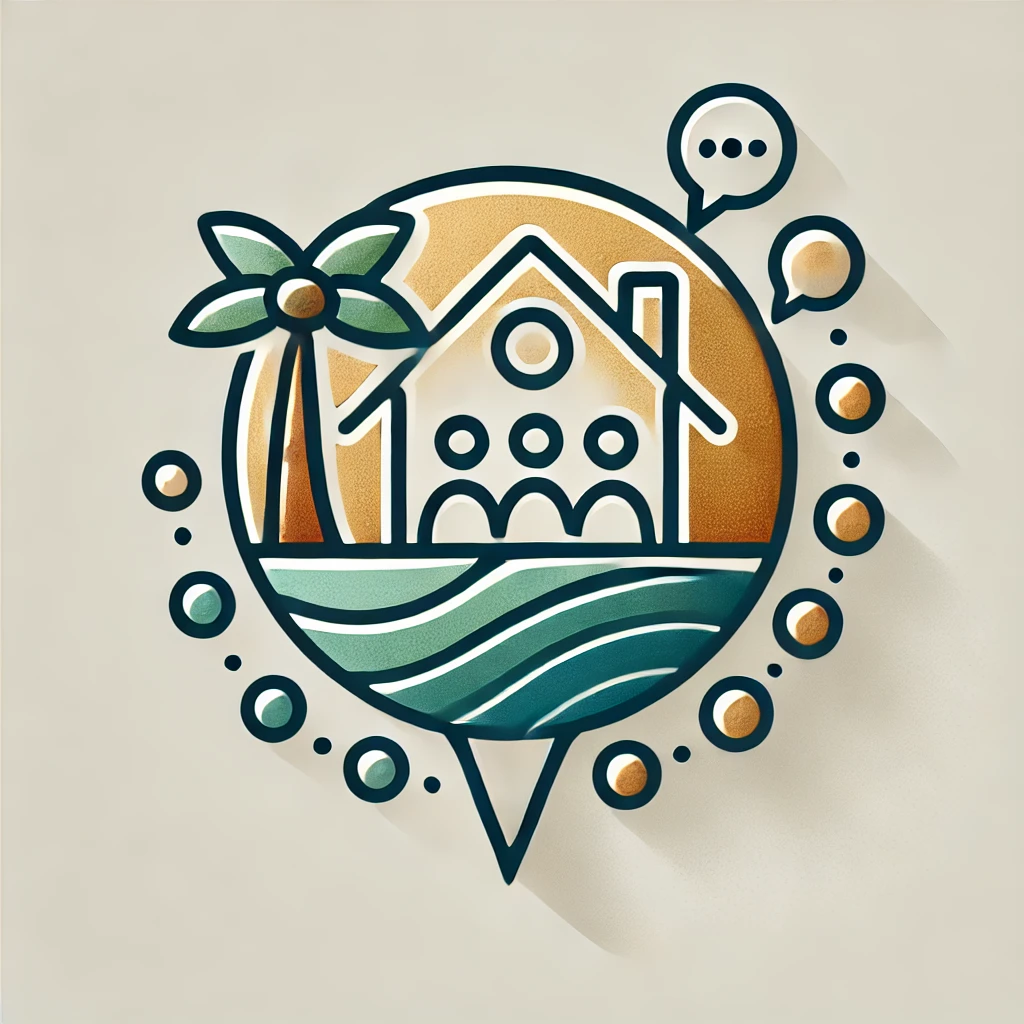Table of Contents:
Croatia in the Winter: An Overview
Many individuals associate Croatia purely with its sun-drenched summer season. However, arguably, Croatia in the winter presents an entirely different, yet equally enchanting experience. Winter's arrival transforms the country, unveiling a side often overlooked by the typical summer tourist. This is especially true for the alluring Croatian coast.
The coastlines that entertain large crowds in the summer hold a quiet, serene beauty during the winter months. You'll find picturesque cities like Split and Dubrovnik — normally bustling with tourists, now presenting a more authentic local experience. This off-season period in Croatia allows for greater exploration of its rich cultural heritage, stunning architecture, and vibrant winter festivities without the summer crowds.
Coastal Wonders in Croatia during Winter
Winter's arrival along Croatia's coast uncovers a unique charm – a world away from the typical beach holiday experience. The crystal-clear waters of the Adriatic get replaced with a harsher, yet equally captivating, sea landscape. The islands such as Korčula and Hvar maintain their beauty, highlighting historic architecture against the backdrop of a winter blue sky.
Contrary to popular belief, winters on the Croatian coast aren't overly harsh. Mild temperatures make exploring towns like Zadar and Rovinj pleasant. Furthermore, the ancient city walls of Dubrovnik feel somewhat magical in the soft winter sun. Far from the summer hustle, the coastal cities and towns are peaceful, allowing a more intimate exploration of their narrow streets, squares, and historic monuments.
Winterizing your Croatian vacation means swapping crowded beaches for cozy coastal cafés. Spend time savoring traditional sea-weathered culinary delights, while experiencing the unique Croatian hospitality away from high-season prices.
Advantages and Disadvantages of Visiting Croatia in Winter
| Pros | Cons |
|---|---|
| Less crowded tourist spots | Colder weather |
| Lower prices for accommodation | Possibility of some attractions being closed |
| Beautiful winter landscapes | Less daylight for sightseeing |
| Winter festivals and events | Potential for flight delays due to weather |
Advantages of Visiting Croatia's Coast in Winter
Opting for Croatia in the winter, particularly the coast, boasts several advantages. Firstly, one of the most significant benefits is the decrease in tourism traffic. With fewer tourists, the true character of the Croatian coastal towns comes to the forefront, providing a deeply immersive cultural experience.
Fewer tourists also mean better accessibility to tourist spots and lesser wait times. Imagine having a near-exclusive tour of Split's Diocletian's Palace or a leisurely walk through the cobbled streets of Dubrovnik's Old Town without the crowd. To add to that, prices for accommodation, dining, and local services are usually lower during the winter months, which can make your trip more economical.
Secondly, winter in Croatia sees various festivals and events. From the joyful Christmas markets to the vibrant New Year's Eve celebrations, winter is a time when the coast comes alive with local traditions and festivities. Participating in these events can be a unique way to understanding Croatia's rich heritage and traditions.
Lastly, the Croatian coast in winter provides unparalleled scenic beauty. The coastal landscape takes on a different charm in the colder months - from snow-covered mountain peaks to the dramatic setting of the sun over the Adriatic Sea. It’s a photographer's delight!
Top Winter Destinations on Croatia's Coast
If you're picturing your winter vacation in Croatia, you're likely to think of some of Croatia's most popular coastal cities. But there's more to see than just the usual suspects. In this section, we've profiled a few of the top winter destinations on Croatia's coast, famed for their unique appeal during the colder months.
Rijeka, Croatia's third-largest city, is a captivating blend of culture and history. Its intriguing mix of Italian, Hungarian, and Croatian influences are best enjoyed during winter, away from the summer rush. The renowned Carnival of Rijeka stages incredible events, parades, and costumes, setting the city ablaze with vibrancy and festivities in the heart of winter.
No Croatian winter coast tour would be complete without a visit to the charming peninsula of Istria. Known for its Italian-like charm, Istria is home to picture-perfect towns like Rovinj and Poreč, boasting cobblestone streets, colorful facades, and stunning sea views. Winter here is mild with fewer crowds, making it a delightful time for exploration.
A visit to the UNESCO-protected city of Trogir a magical winter fairy tale. From the wonderfully preserved medieval architecture to the magnificent cathedral, the city is a treasure trove of cultural and historical riches.
Finally, the island of Brač, noted for its iconic Zlatni Rat beach, offers a serene, laid-back winter holiday. Wandering around its quaint villages, you can soak in the local culture and enjoy some of the island's winter delicacies.
Tips for Visiting Croatia in Winter
While enchanting, a winter visit to Croatia's coast might require some thoughtful preparation. Here are some tips to enhance your visit:
1. Dress Appropriately: Although Croatian winters are usually mild, it's best to pack versatile clothing. Layers are key as temperatures can vary.
2. Plan your Itinerary: Many attractions may have shorter opening hours or may be closed altogether. Check in advance that the places you want to visit are open.
3. Indulge in Local Cuisine: Croatian coastal regions are renowned for their exquisite seafood. Winter is the best time for local specialties like cuttlefish risotto, or 'brodet', a fish stew.
4. Participate in Local Festivals: From Christmas markets to the iconic Rijeka Carnival, there are plenty of festivals that provide a glimpse into Croatian culture and traditions.
5. Use Public Transport: Some ferry routes may not be operational during winter. Plan your inter-island travel accordingly, and consider using buses or trains for mainland travel.
6. Secure Accommodation: Although winter sees fewer tourists, it's the festive season, and hotels can get booked up. Advance booking is recommended.
While winter in Croatia's coastal regions might not fit the typical sunny vacation image, it can, however, offer a vibrant, authentic, and tranquil travel experience that is hard to replicate elsewhere.
Things to Do on Croatia's Coast in Winter
When it comes to winter activities on Croatia's coast, you’re spoilt for choice. For those inclined towards outdoor pursuits, winter hiking and bird-watching in the magnificent Paklenica National Park or Biokovo Nature Park can be most rewarding. The parks are less crowded in winter, with crisp air and clear views that serve up some breathtaking panoramas.
For history and culture buffs, avoid summer crowds by visiting museums and galleries. For instance, Zagreb's Museum of Broken Relationships and the Gallery of Fine Arts in Split present fascinating insights into Croatian culture and history.
Food enthusiasts can attend the lively truffle festivals in Istria. Winter is truffle season in Croatia, and these gourmet delights are celebrated nationwide with gusto. Wine tasting is another experience you can indulge in, with many coastal wineries offering intimate, off-season tours.
Not to miss is the Adriatic Sea’s stunning spectacle of wintering sea birds and dolphins, offered by numerous boat tours. It is a sight you wouldn't want to miss! Additionally, the celebration of Christmas and the New Year is a grand affair in Croatia. You can be part of local customs, eat traditional foods, and join in the festivities.
Lastly, for those seeking rest and rejuvenation, consider visiting one of Croatia's top-notch wellness centers or spas. Indulge in a winter wellness retreat that often includes sauna, steam bath, massage, and other treatments that can be enjoyed year-round.
Conclusion: Croatia's Winter Coast - A Hidden Gem
In conclusion, the lure of Croatia in the winter, particularly its captivating coast, is a secret well-kept from the summer crowd. Offering more than just a respite from the summer heat, a winter vacation along its enchanting seaside towns and cities presents an authentic Croatian experience.
From the stunning architecture that tells tales of history to the warmth of the local people, each coastal town and city in Croatia holds something special during winter. Along with the vibrant holiday celebrations and picturesque landscapes, a winter trip to Croatia's coast can offer a tranquil yet culturally enriching escape from the routine.
Croatia's winter coast is not just a destination; it's an experience that goes beyond the ordinary, presenting a truly unique holiday like none other. So, if you haven't considered Croatia as a winter holiday destination yet, it's high time to put it on your bucket list. Trust us, the experience will stay with you long after your trip is over.
Exploring Croatia During the Winter Months
What is the weather like in Croatia during winter?
Croatia experiences a mix of climates but the winter is generally mild and humid along the coast, and cold and snowy in the interior of the country.
Are there winter sports available in Croatia?
Yes, Croatia has winter sports offerings, with several ski resorts and ice skating rinks available during the winter season.
Are all tourist attractions available during winter?
While some attractions may have reduced hours, many of Croatia's tourist attractions remain open in the winter months.
Is it a good time to visit Croatia in winter?
Yes, it can be a great time to visit, especially if you enjoy winter sports or want to experience Croatian holiday traditions.
What should I pack for a winter trip to Croatia?
Warm clothes are essential, including a heavy coat for colder days. Layering is also advisable to adapt to changing weather conditions.





